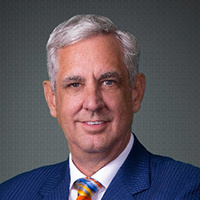Villa Park White Collar Crime Lawyer, Illinois
Sponsored Law Firm
-
 x
x

Click For More Info:
-
The Law Offices of Richard L. Cooper, P.A.
848 Brickell Avenue Suite 800 Miami, FL 33131» view mapDWI/DUI, Drug Trafficking, Felony Nationally Ranked Top 40 Under 40
With Richard L. Cooper you can expect a trusted confidant who will work diligently to fully understand your case and determine a road map to help you regain control of your life.
800-756-2781
Donald John Ramsell
✓ VERIFIEDCriminal, Traffic, DUI-DWI, White Collar Crime, Felony
When Everyone Else Is On Your Back, We Are On Your Side
Donald J. Ramsell's interests include golf, Corvettes, the Cubs, travel, and winning cases. Donald J. Ramsell is the only Illinois DUI defense att... (more)
Clarissa Myers
Criminal, DUI-DWI, Divorce & Family Law, Misdemeanor, White Collar Crime
Status: In Good Standing Licensed: 18 Years
FREE CONSULTATION
CONTACTCarlos Humberto Davalos
Traffic, Deportation, White Collar Crime, Civil Rights
Status: In Good Standing
Michael Francis McMahon
Criminal, DUI-DWI, Misdemeanor, White Collar Crime, Traffic
Status: In Good Standing Licensed: 31 Years
FREE CONSULTATION
CONTACTJohn Louis Fioti
Traffic, Criminal, Corporate, Administrative Law, White Collar Crime
Status: In Good Standing Licensed: 33 Years
Eunice Tejeda
Litigation, Patent, White Collar Crime, Consumer Protection
Status: In Good Standing Licensed: 11 Years

 Richard L. Cooper Miami, FL
Richard L. Cooper Miami, FL AboutMiami Attorney at Law
AboutMiami Attorney at Law ServicesCriminal Defense
ServicesCriminal Defense

